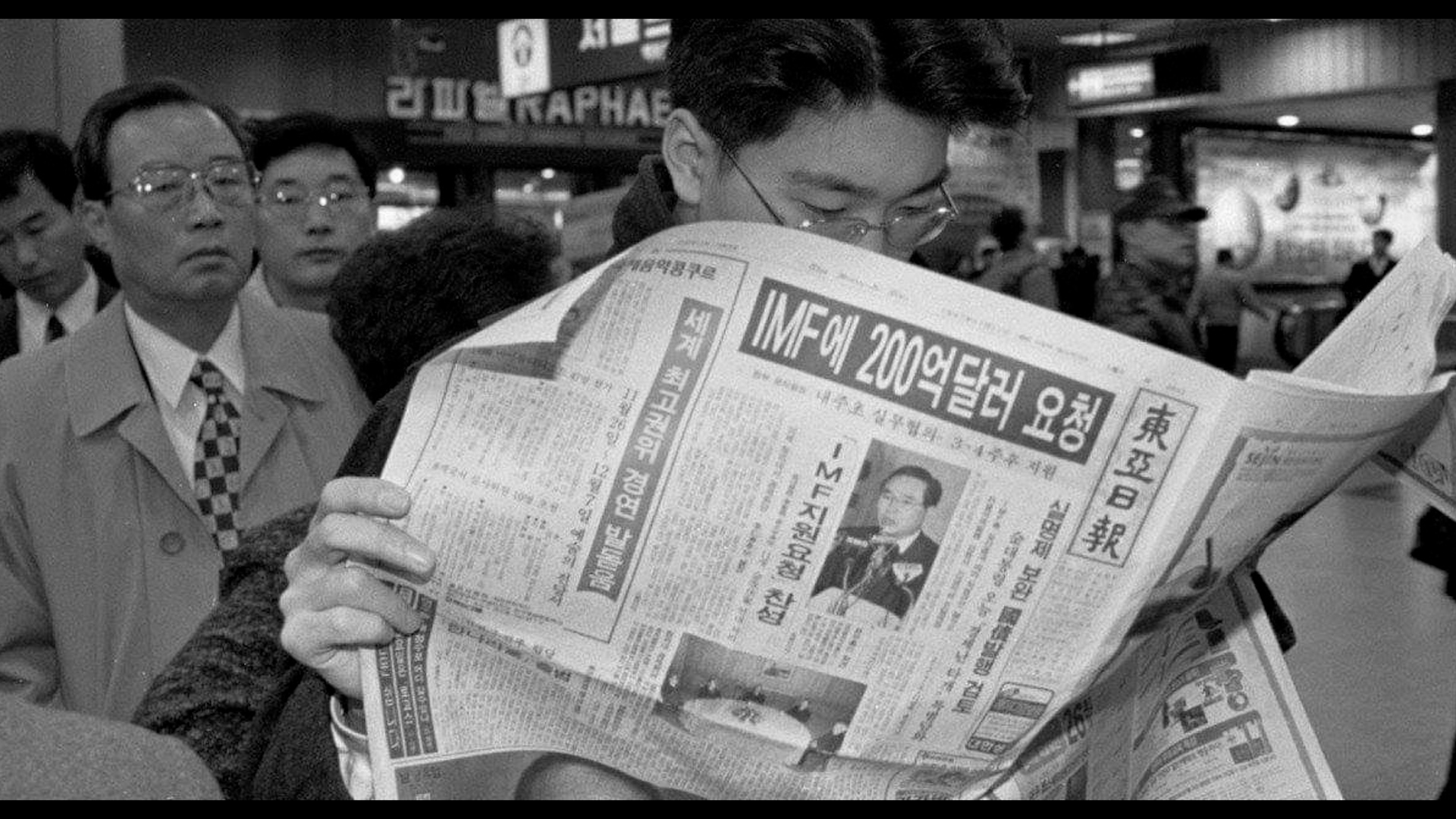DMZ Docs Industry Projects
1997
Junsik TAE
- Korea
- 90min
- DCP
- color/black and white
Synopsis
At some point, ‘economic crisis’ has become accepted as a common occurrence in Korean society. The cycles between them get shorter, and citizens experience increasingly harsher lives whenever they manage to weather the storm. When did such a cruel social phenomenon begin? The Center for Freedom of Information and Transparent Society, a civic group, made public a document written by the International Monetary Fund (IMF) in 1997. The document was produced during the bailout negotiations between the IMF and the Korean government. It reveals the decisions of the international institution served the ‘belief’ of international speculative capital. The document also reveals the solution to the crisis, designed by Korean economic bureaucrats, who brought about an economic crisis. The solution was ‘neoliberalism’. It all began right there. As a result of the ‘neoliberal planning’, Korea has become one of the most unequal societies in the world. The tragedy of the country with the highest suicide rate among Organization for Economic Cooperation and Development (OECD) nations also began with the 1997 financial crisis. Twenty-five years have passed since 1997. Alarms about an economic crisis are raised ever more frequently. Profits have been privatized while losses have been borne by society. What have we learned from the 1997 financial crisis?
Review
In this current era of unprecedented inflation and monetary tightening with high interest rates, the pandemic crisis is still ongoing. The catastrophic climate crisis is attacking human beings right now. Can we really trust the ‘system’ in the face of these unprecedented disasters? Korea, a successful neoliberal country, is still under the influence of what it experienced 25 years ago. The economic policies of the new government are thoroughly neoliberal. It incites a crisis and consolidates a monopoly. The social lessons that the year 1997 left behind are also interpreted from their points of view.
Now is the time that a social text is needed to spark debates and stimulate reflection on alternative solutions to overcome the crises. ‘1997—The Nation Disappeared’ attempts to fulfill the role as a historical, social and analytical documentary film. It aims to become a documentary film featuring a variety of stereoscopic perspectives, while overcoming the limitations of general documentary language full of enumeration.
Director
-

Junsik TAE

